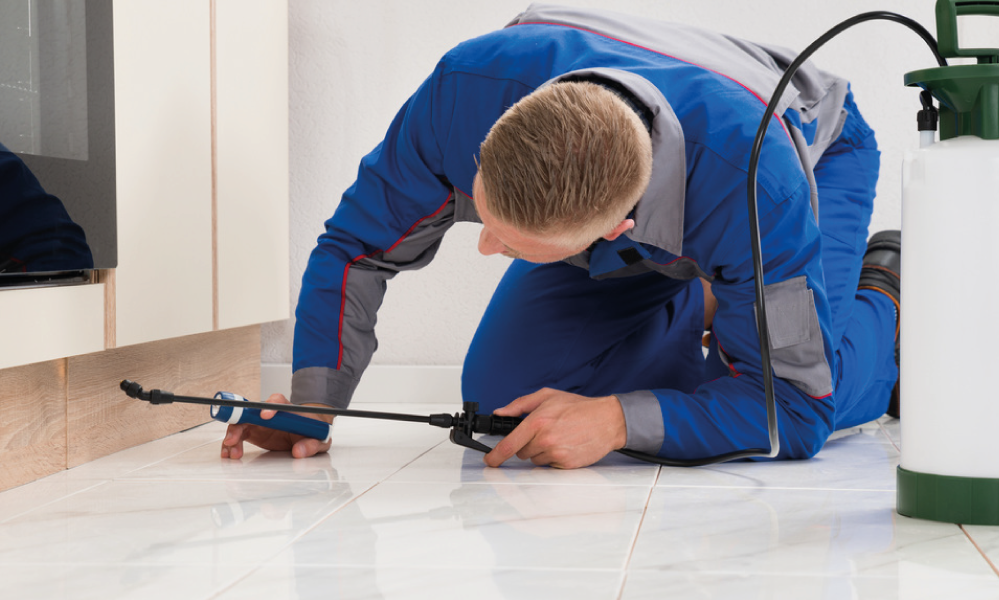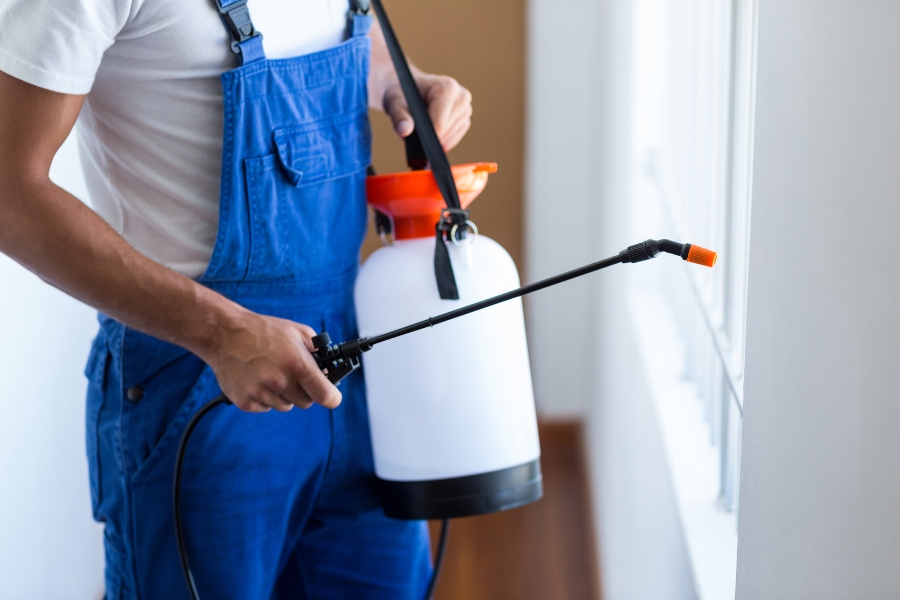Comprehensive Pest Control Clovis Solutions for each Requirement
Comprehensive Pest Control Clovis Solutions for each Requirement
Blog Article
Comprehending the Various Techniques to Pest Control: A Comprehensive Overview

All-natural Parasite Control Methods
Employing environmentally friendly techniques such as friend planting and organic pest control is necessary for properly taking care of parasites in farming setups. Companion planting involves expanding various plants in closeness to hinder parasites, boost nutrient uptake, and boost total plant health and wellness. Planting marigolds alongside tomatoes can help repel nematodes. Intercropping maize with legumes can disrupt the breeding patterns of pests like corn borers.
Biological parasite control includes introducing all-natural predators or virus to manage pest populations. Ladybugs, for circumstances, feed upon aphids, controlling their numbers without the demand for chemical pesticides. One more instance is the usage of Bacillus thuringiensis (Bt), a bacterium that targets certain insect pests while being safe to humans, animals, and valuable bugs.
These environmentally friendly approaches not only lower the reliance on artificial pesticides but likewise help protect biodiversity and dirt health. By including natural bug control strategies right into agricultural techniques, farmers can achieve lasting pest administration while decreasing negative influence on the environment.

Chemical Insect Control Solutions
Along with all-natural pest control techniques, the application of chemical bug control options plays a substantial function in successfully handling pest populaces in agricultural atmospheres. Chemical insect control remedies are developed to target particular bugs that might create extensive damages to plants. These remedies frequently include synthetic pesticides that are created to remove parasites promptly and efficiently.
Among the key benefits of chemical pest control solutions is their effectiveness in controlling pest infestations widespread. Farmers can use these solutions using various methods such as splashing, airing out, or seed therapy to secure their crops from damaging bugs, weeds, and diseases. Furthermore, chemical parasite control remedies are reasonably simple to apply and can provide rapid outcomes, assisting farmers protect their yields and minimize financial losses.
Nonetheless, it is vital to utilize chemical pest control options judiciously to minimize prospective negative effect on the atmosphere, non-target microorganisms, and human health and wellness. Proper application methods, adherence to safety standards, and regular surveillance are important to ensure the accountable use of chemical bug control solutions in agricultural techniques.
Biological Parasite Control Approaches
Biological pest control approaches utilize natural killers or pathogens to handle parasite populations in farming setups successfully. This technique supplies a environmentally friendly and lasting solution to pest administration, lowering the reliance on synthetic chemicals and decreasing harm to the setting. One usual biological control method is the intro of all-natural enemies, such as ladybugs or parasitic wasps, to target certain parasites. These killers prey on the insects, assisting to regulate their populaces normally - pest control clovis.
An additional organic control approach entails utilizing virus like infections, fungi, or germs to contaminate and kill insects. These microbial agents can be you could look here sprayed on crops or introduced right read this article into the dirt to deal with different bugs without hurting useful bugs or other wildlife. Additionally, making use of scents to interrupt the mating patterns of insects is another reliable biological control strategy. By conflicting with their recreation, this technique assists to reduce pest populaces without the requirement for chemical intervention. Overall, organic pest control strategies supply a sustainable and targeted solution to pest monitoring in farming.
Integrated Insect Monitoring (IPM)
Integrated Insect Monitoring (IPM) is a detailed approach that integrates numerous bug control strategies to properly handle and decrease pest populations in agricultural systems. IPM concentrates on long-term prevention of parasites via a combination of biological, cultural, physical, and chemical control approaches. By integrating these different techniques, IPM intends to decrease dependence on chemical pesticides, decrease environmental influence, and promote sustainable bug monitoring practices.
One secret facet of IPM is using biological controls such as natural predators, bloodsuckers, and microorganisms to manage pest populations. This technique uses the power of nature to maintain a balance between insects and their all-natural opponents without creating damage to the environment.
In addition, IPM entails cultural practices like crop habitat, rotation, and sanitation control to create unfavorable conditions for insects and interrupt their life process. Physical controls such as traps, mulches, and obstacles are also made use of to stop pest infestations.
Physical and mechanical Insect Control Methods
Using non-chemical approaches, such as physical and mechanical parasite control methods, is a critical element of extensive insect management strategies, building on the structure of Integrated Insect Administration's holistic strategy. Mechanical bug control includes the pop over here use of physical obstacles or catches to avoid pests from accessing and harming crops or frameworks. This approach can include strategies like mounting screens on home windows, utilizing row covers in agriculture, or using sticky traps to capture bugs.
Physical bug control techniques, on the other hand, concentrate on directly removing insects via physical ways. Making use of heat therapies to get rid of bed insects or vacuuming up pests like spiders or ants can be effective methods to manage invasions without the usage of chemicals. By incorporating these physical and mechanical insect control strategies into an Integrated Bug Monitoring plan, people and specialists can reduce reliance on chemicals while still effectively taking care of pest populations and minimizing damage.
Final Thought

In enhancement to all-natural insect control methods, the usage of chemical bug control solutions plays a significant function in effectively managing pest populaces in farming environments.One of the crucial advantages of chemical bug control services is their effectiveness in controlling parasite infestations on a large range.Integrated Parasite Management (IPM) is a thorough technique that incorporates numerous insect control strategies to properly handle and decrease pest populaces in agricultural systems.Making use of non-chemical techniques, such as mechanical and physical parasite control methods, is a crucial element of detailed pest administration methods, developing upon the foundation of Integrated Insect Monitoring's alternative strategy. By including these mechanical and physical insect control methods right into an Integrated Parasite Administration plan, experts and individuals can lower reliance on chemicals while still efficiently handling pest populations and lessening damage.
Report this page